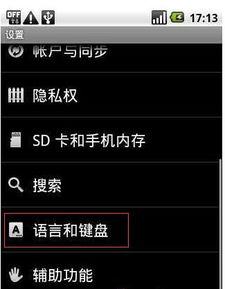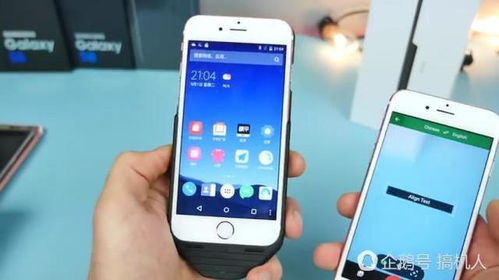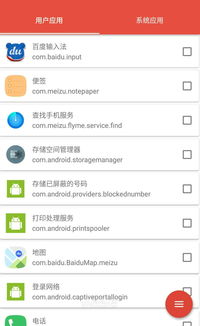
苹果系统和安卓系统英文,Introduction to Apple and Android Systems
时间:2024-12-10 来源:网络 人气:
Introduction to Apple and Android Systems

When it comes to mobile devices, the operating system (OS) is the heart and soul of the device. It determines how the device operates, what applications it can run, and the overall user experience. Two of the most popular mobile OSes are Apple's iOS and Google's Android. This article will delve into the characteristics, advantages, and differences between these two systems.
Apple's iOS: The Ecosystem Approach

Developed by Apple Inc., iOS is the operating system that powers all Apple devices, including the iPhone, iPad, and iPod Touch. iOS is known for its seamless integration with other Apple products, creating an ecosystem that enhances the user experience. Here are some key features of iOS:
Design and User Interface: iOS boasts a clean, intuitive interface that is consistent across all devices. The design philosophy emphasizes simplicity and ease of use.
Security: Apple's focus on security is evident in its strict app review process and end-to-end encryption. This makes iOS a preferred choice for users who prioritize privacy and security.
App Store: The Apple App Store offers a vast selection of high-quality apps, with a focus on user experience and design. Developers often prioritize iOS for their app development, ensuring a rich app ecosystem.
Hardware Integration: iOS devices are designed to work seamlessly with other Apple products, such as the Apple Watch, AirPods, and Mac computers.
Android: The Open Source Giant

Android, developed by Google, is an open-source operating system that powers a wide range of devices from various manufacturers, including smartphones, tablets, and even smartwatches. Here are some key features of Android:
Customization: Android offers a high degree of customization, allowing users to personalize their devices with different launchers, themes, and widgets.
Open Source: Being open-source, Android allows manufacturers to modify the OS to suit their devices, leading to a diverse range of devices with varying specifications and features.
Google Services: Android devices come with a suite of Google services, such as Google Maps, Gmail, and YouTube, which are tightly integrated into the OS.
App Ecosystem: The Google Play Store offers a vast selection of apps, with a focus on both free and paid applications. However, the quality of apps can vary, and some users may find it challenging to navigate the vast selection.
Comparison: iOS vs. Android

While both iOS and Android offer a wide range of features and benefits, there are several key differences between the two:
Design and User Interface: iOS is known for its clean, minimalistic design, while Android offers a more customizable interface.
Security: iOS is generally considered more secure than Android, thanks to Apple's strict app review process and end-to-end encryption.
App Quality: The Apple App Store is known for its high-quality apps, while the Google Play Store offers a more diverse selection, with varying quality.
Customization: Android offers a higher degree of customization, allowing users to tailor their devices to their preferences.
Conclusion

Both iOS and Android have their strengths and weaknesses, and the choice between the two ultimately depends on the user's preferences and needs. iOS is ideal for users who prioritize security, privacy, and a seamless ecosystem, while Android is perfect for those who value customization, a wide range of devices, and a diverse app ecosystem.
Tags:

Apple iOS, Google Android, mobile operating systems, comparison, user experience
教程资讯
教程资讯排行
- 1 安卓系统清理后突然卡顿,系统清理后安卓手机卡顿?揭秘解决之道!
- 2 安卓系统车机密码是多少,7890、123456等密码详解
- 3 vivo安卓系统更换鸿蒙系统,兼容性挑战与注意事项
- 4 希沃白板安卓系统打不开,希沃白板安卓系统无法打开问题解析
- 5 dell进不了bios系统,Dell电脑无法进入BIOS系统的常见原因及解决方法
- 6 x9手机是安卓什么系统,搭载Funtouch OS3.0的安卓体验
- 7 安卓系统优学派打不开,安卓系统下优学派无法打开的解决攻略
- 8 安卓车机怎么查系统内存,安卓车机系统内存检测与优化指南
- 9 Suica安卓系统,便捷交通支付新体验
- 10 12pm哪个系统最好,苹果12哪个版本的系统更省电更稳定







![游戏 [][][] 创意齿轮](/uploads/allimg/20251218/9-25121R03143202.jpg)



